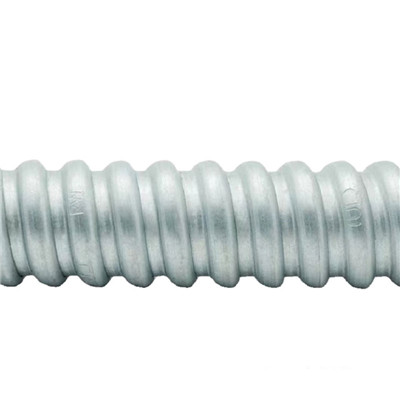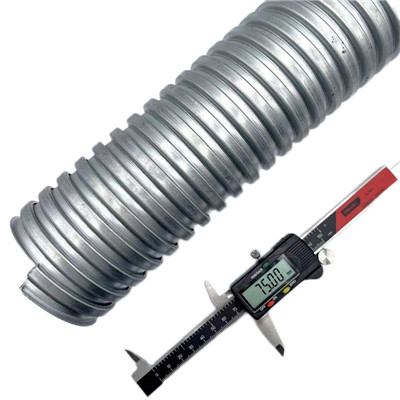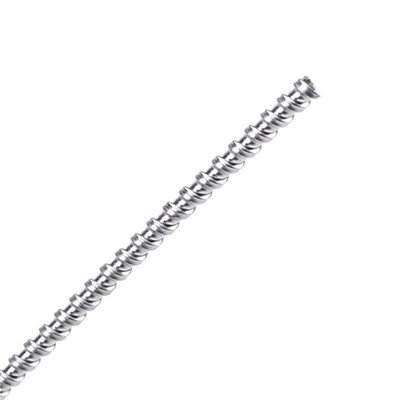We are specialized in manufacturing all kinds of metal conduit,
Hangzhou Fanyumeier Trading Co., Ltd
What are Conduits?
What are Conduits?
Definition of Conduits
Conduits, in the context of construction and electrical engineering, refer to protective tubes or channels used to encase and safeguard various types of wiring. These tubes act as a shield, preventing damage, wear, and interference from external elements.

Types of Conduits
Conduits come in different materials and designs to suit specific applications. The most common types include:
Rigid Metal Conduits (RMC): Made of steel, RMC provides exceptional protection and durability. It is often used in industrial and commercial settings.
Electrical Metallic Tubing (EMT): Constructed from galvanized steel or aluminum, EMT is lightweight and flexible, making it suitable for residential and light commercial projects.
Flexible Metal Conduits (FMC): Designed with a spiral metal core and covered in plastic, FMC offers flexibility and versatility, ideal for areas with tight bends or vibrations.
PVC Conduits: Polyvinyl chloride (PVC) conduits are cost-effective and widely used in residential and light commercial applications. They are resistant to corrosion and offer excellent electrical insulation.
Importance of Conduits
Conduits play a crucial role in various industries, ensuring the efficiency, safety, and longevity of electrical systems and data communication networks.
Conduits in Construction
In construction projects, conduits provide a reliable pathway for electrical wiring and other utilities. They protect the cables from physical damage, moisture, and environmental factors. Additionally, conduits facilitate easy maintenance and future expansions, saving time and costs.

Conduits in Electrical Systems
Within electrical systems, conduits offer numerous advantages. They prevent wires from being exposed, reducing the risk of accidents and electrical hazards. Conduits also help in organizing the cables, making troubleshooting and repairs more manageable. Moreover, they shield the wiring from electromagnetic interference, ensuring reliable and uninterrupted power supply.
Conduits in Data Communication
In the realm of data communication, conduits play a critical role in creating a stable and secure network infrastructure. They safeguard the intricate web of cables, including fiber optic lines, Ethernet cables, and network wiring. By protecting against external interference and accidental damage, conduits help maintain optimal data transmission speeds and minimize downtime.
Benefits of Conduits
The utilization of conduits offers several key benefits that make them indispensable in modern installations.
Protection and Safety
One of the primary advantages of conduits is the enhanced protection they provide to electrical and communication cables. By shielding the wiring from physical impact, moisture, and corrosive substances, conduits minimize the risk of short circuits, electrical shocks, and data loss. This significantly contributes to the overall safety of the system and its users.
Organization and Flexibility
Conduits enable neat and organized wiring arrangements. The cables can be grouped within the conduits, ensuring an aesthetically pleasing and easily traceable system. Moreover, the flexibility of certain conduits allows them to be installed in tight spaces or areas with complex layouts, providing a high degree of versatility.

Future-Proofing
With the rapid advancements in technology, it is essential to future-proof installations. Conduits offer the flexibility to upgrade or replace wiring without the need for extensive renovations. This adaptability ensures that systems can keep up with evolving requirements and emerging technologies, saving both time and money in the long run.
Installation and Maintenance
Proper installation and regular maintenance are vital for the optimal performance of conduits and the systems they support.
Choosing the Right Conduit
Selecting the appropriate conduit depends on the specific requirements of the project. Factors to consider include the environment, application, wiring type, and expected loads. Consulting with experts and adhering to relevant codes and standards helps ensure the correct choice.
where to buy Conduits
HANGZHOU LOVEHOME INDUSTRIAL CO.,LTD is a company who borns in Hangzhou -- the beautiful G20 Summit host city in 2016. Our products are also mainly exported to Southeast Asian countries, such as Singapore, Malaysia, Philippines, Indonesia, etc., as well as Dubai in the Middle East. We have our own factory -- Hangzhou Xiaoshan Guali Metal Flex. Conduit Factory. It is a large-sized privately owned enterprise which was established in 1997. We are specialized in manufacturing all kinds of metal conduit, G.I steel strip and connectors.
Stainless steel optical fiber tube
American standard galvanized metal conduit
Galvanized steel flexible conduit
-
Seal Tight Conduit: Protecting Your Electrical Wiring with Confidence

2023-06-01
-
6-Inch Plastic Pipe - Versatile and Durable Solution for Various Applications

2023-06-01
-
Understanding the benefits and drawbacks of plastic drain pipes

2023-06-01
-
What Is Flexible Non-Metallic Conduit and Where Is It Used

2023-06-01
















